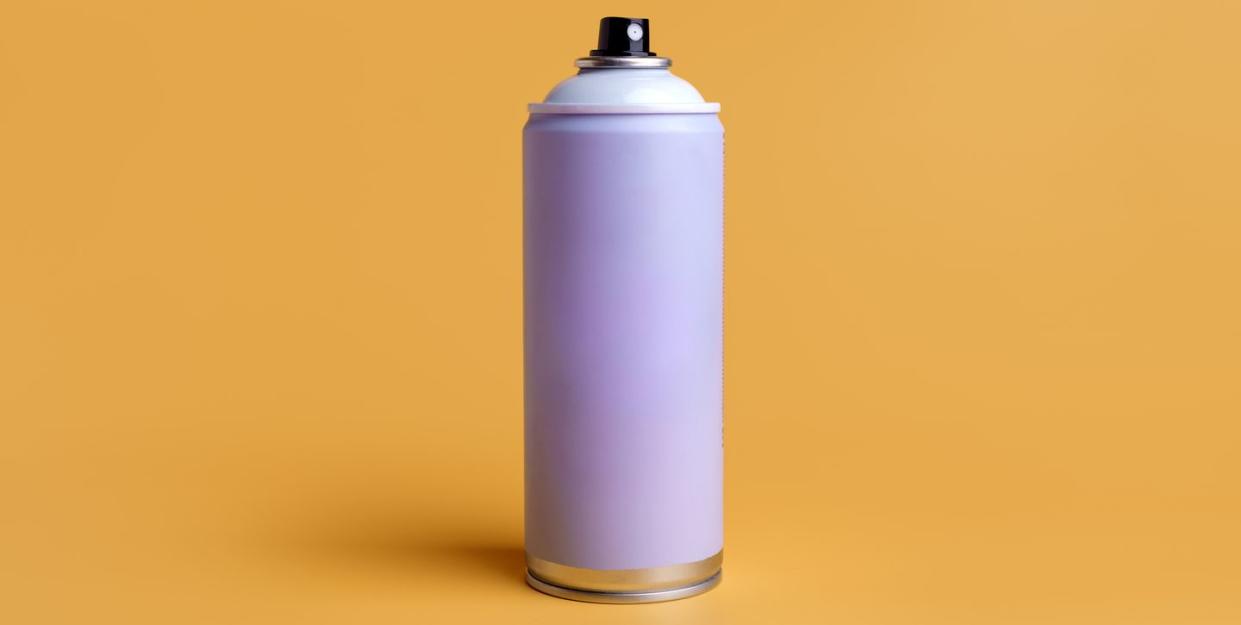Major Dry Shampoo Brands From Unilever Recalled Over Cancer-Causing Ingredient

Unilever has issued a voluntary recall of 19 shampoo products in the U.S. after testing revealed they may contain benzene, a known cancer-causing chemical. The recall impacts popular brands, including Dove, Nexxus, Suave, TIGI, and TRESemmé.
The recall, which was issued through the Food and Drug Administration (FDA), notes that the impacted products were produced before October 2021. The complete list of products can be found online, but includes:
Bed Head Dirty Secret Dry Shampoo
Dove Dry Shampoo Volume and Fullness
Nexxus Dry Shampoo Refreshing Mist
Tresemmé Dry Shampoo Fresh and Clean
Suave Dry Shampoo Hair Refresher
The recall notice includes this disclaimer: “Based on an independent health hazard evaluation, daily exposure to benzene in the recalled products at the levels detected in testing would not be expected to cause adverse health consequences.” Still, the FDA says, “Unilever U.S. is recalling these products out of an abundance of caution,” noting that the company “has received no reports of adverse events to date relating to this recall.”
The FDA is urging people who have the impacted products to stop using them and visit UnileverRecall.com for information on how to get reimbursed.
A publicist for Unilever told Prevention that “no other products are impacted by this recall.”
This isn’t the first time Unilever has issued a recall over benzene in its products. Last year, Unilever recalled its Suave 24-Hour Protection Aerosol Antiperspirant Powder and Suave 24-Hour Protection Aerosol Antiperspirant Fresh due to the presence of “slightly elevated levels” of benzene.
Proctor & Gamble also issued a recall of select dry shampoos and dry conditioners last year over benzene concerns.
It’s understandable to have questions, especially if you’ve used one of these products. Here’s what you need to know.
What is benzene?
Benzene is a colorless or light yellow chemical that’s highly flammable, according to the Centers for Disease Control and Prevention (CDC). It also has a sweet smell and dissolves quickly in the air.
The chemical is actually naturally created through processes like volcanos and forest fires, and also is a natural part of gasoline, crude oil, and cigarette smoke, the CDC says.
Benzene is widely used in the U.S.—it’s one of the top 20 chemicals for production volume, per the CDC. It’s used to make a slew of different products, including:
Plastics
Resins
Nylon
Synthetic fibers
Lubricants
Rubbers
Dyes
Detergents
Drugs
Pesticides
Benzene isn’t actually added to dry shampoo, says Jamie Alan, Ph.D., associate professor of pharmacology and toxicology at Michigan State University. Instead, it likely got into the products at some point in the manufacturing process. “It could be a byproduct of a synthesis of one of the compounds or it could be contamination from somewhere in the factory,” she says.
“Benzene is a common industrial contaminant,” explains Diane Calello, M.D., executive and medical director of the NJ Poison Control Center at Rutgers New Jersey Medical School. “It has been found in other personal care products like hand sanitizer and sunscreen and most likely comes from the manufacturing process. Although it should not be in products like dry shampoo, it is used in the production of chemicals, dyes, detergents, and some plastics.”
Why is benzene dangerous?
When you’re exposed to certain levels of benzene, it causes your cells to stop working correctly, the CDC says. That includes causing your bone marrow not to produce enough red blood cells, leading to anemia, and damaging the immune system by changing blood levels of antibodies and causing the loss of white blood cells.
Benzene is classified as a Group 1 carcinogen by the World Health Organization (WHO). Meaning, there’s strong evidence that benzene is linked to cancer. The CDC specifically notes that long-term exposure to benzene raises the risk of developing leukemia.
Some women who breathe in high levels of benzene for many months develop irregular periods and have a decrease in the size of their ovaries, the CDC says.
You can also get sick soon after being exposed to high levels of benzene. The CDC says people who breathe in high levels of benzene could develop the following symptoms within minutes to several hours:
Drowsiness
Dizziness
Rapid or irregular heartbeat
Headaches
Tremors
Confusion
Unconsciousness
Death
How worried should you be about this?
The FDA stressed that the levels of benzene detected in the dry shampoos and conditioners do not seem to be high enough to make people sick. There's also this to consider, per Alan: “Benzene is a common chemical that we encounter because the air outdoor contains small amounts of benzene from tobacco smoke and car exhaust.”
“There is no immediate danger to life or health with brief exposure to small amounts of benzene,” Dr. Calello says. “However, over a long time—months to years—small amounts can lead to long-term health effects, including bone marrow suppression and cancer.”
The likelihood of having dangerous levels of exposure to benzene from dry shampoo is “low in a product that is localized to the scalp,” says Susan Massick, M.D., a board-certified dermatologist at The Ohio State University Wexner Medical Center. Dr. Massick says the recall is a “precaution” but adds that it’s “reasonable once these issues are found.”
If you have one of the recalled products, Dr. Calello recommends that you stop using it. “In the vast majority of cases, this will be sufficient,” she says. “The likelihood of developing disease from using these products is low, but if you are concerned you may have symptoms of a blood disorder, see your physician.” Alan adds, “throw that old bottle away and get a new one.”
You Might Also Like

